Michael Woods blog: The Rook
'This season I really found myself as a rider on this team'
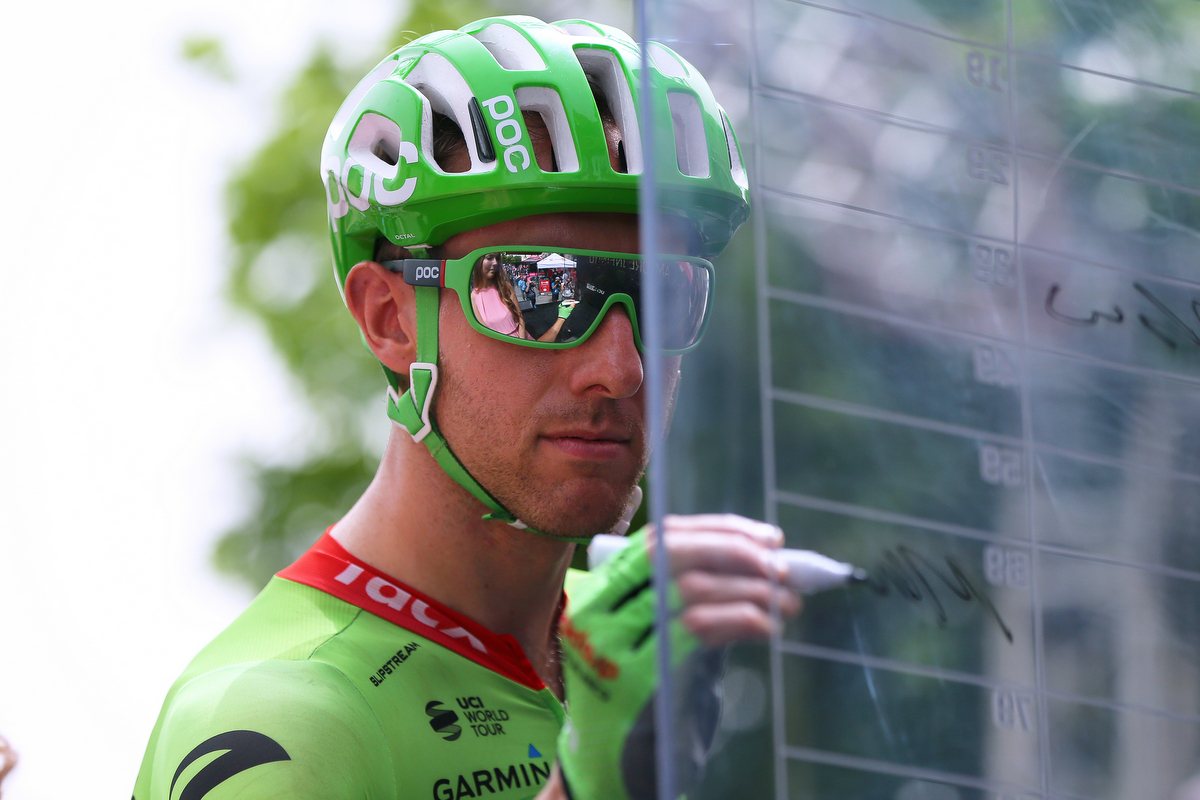
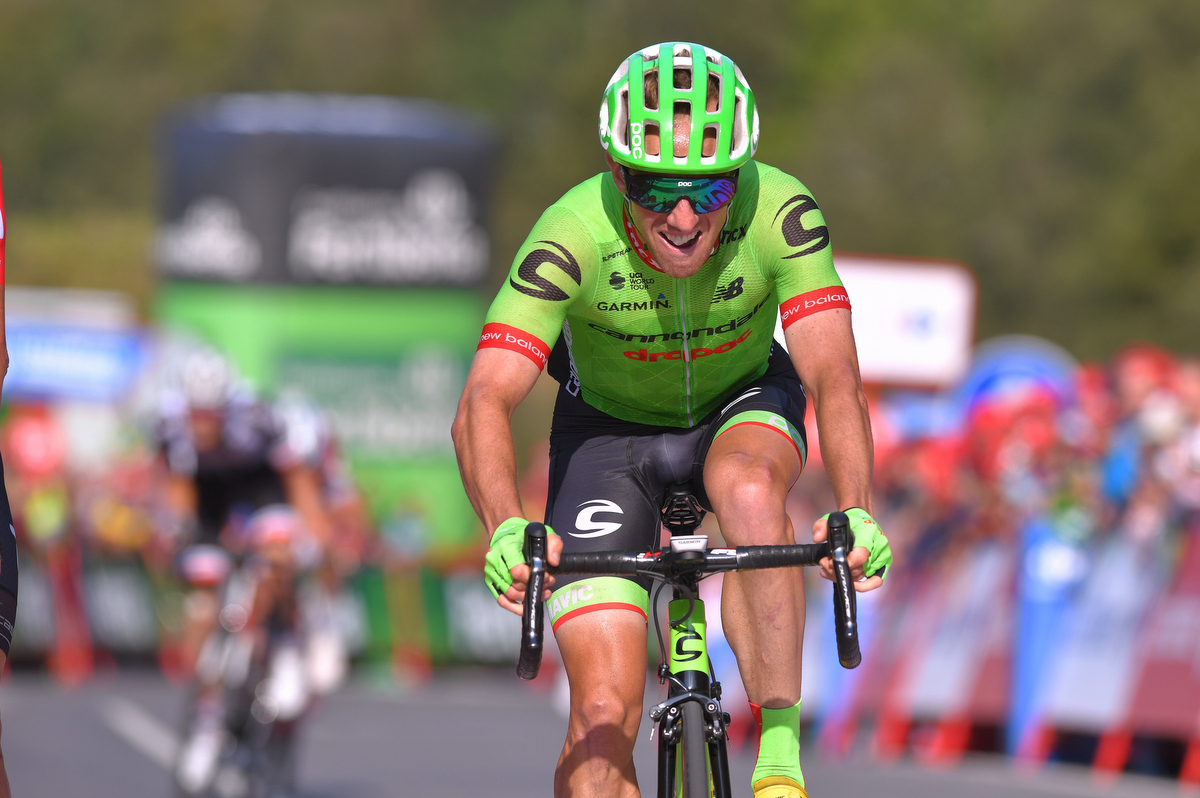
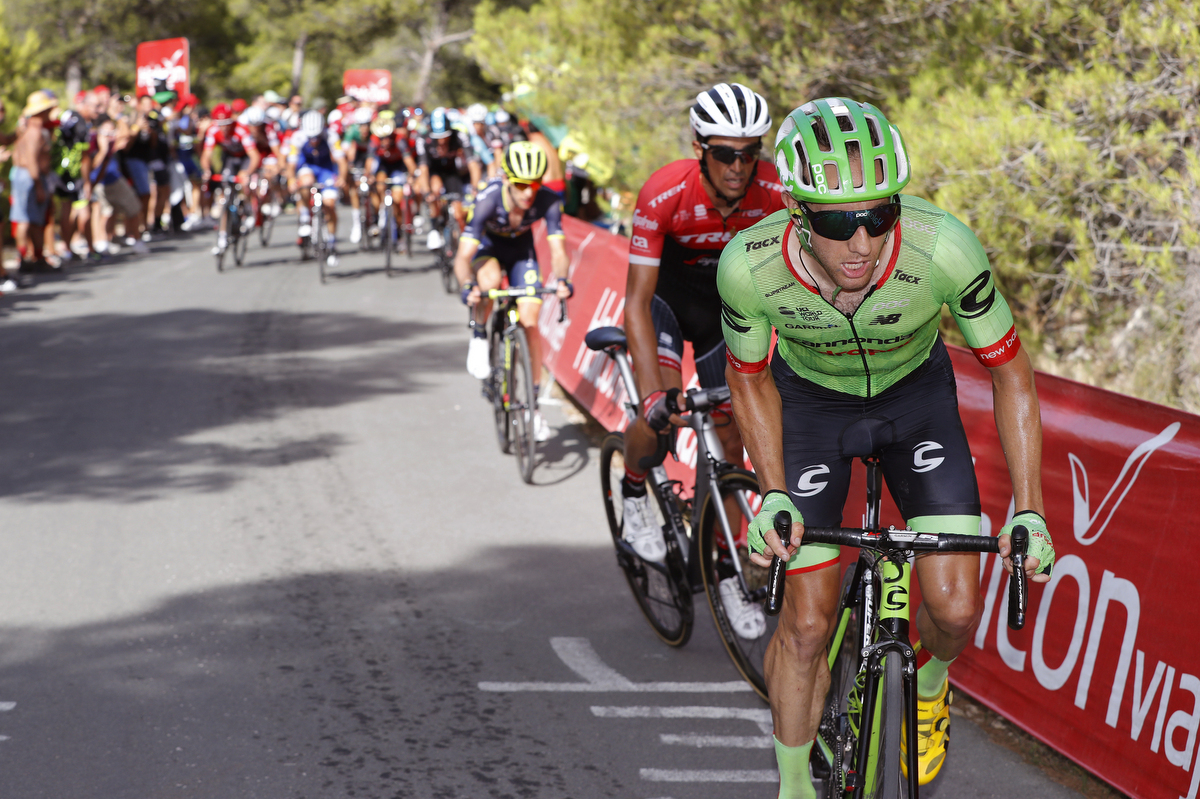
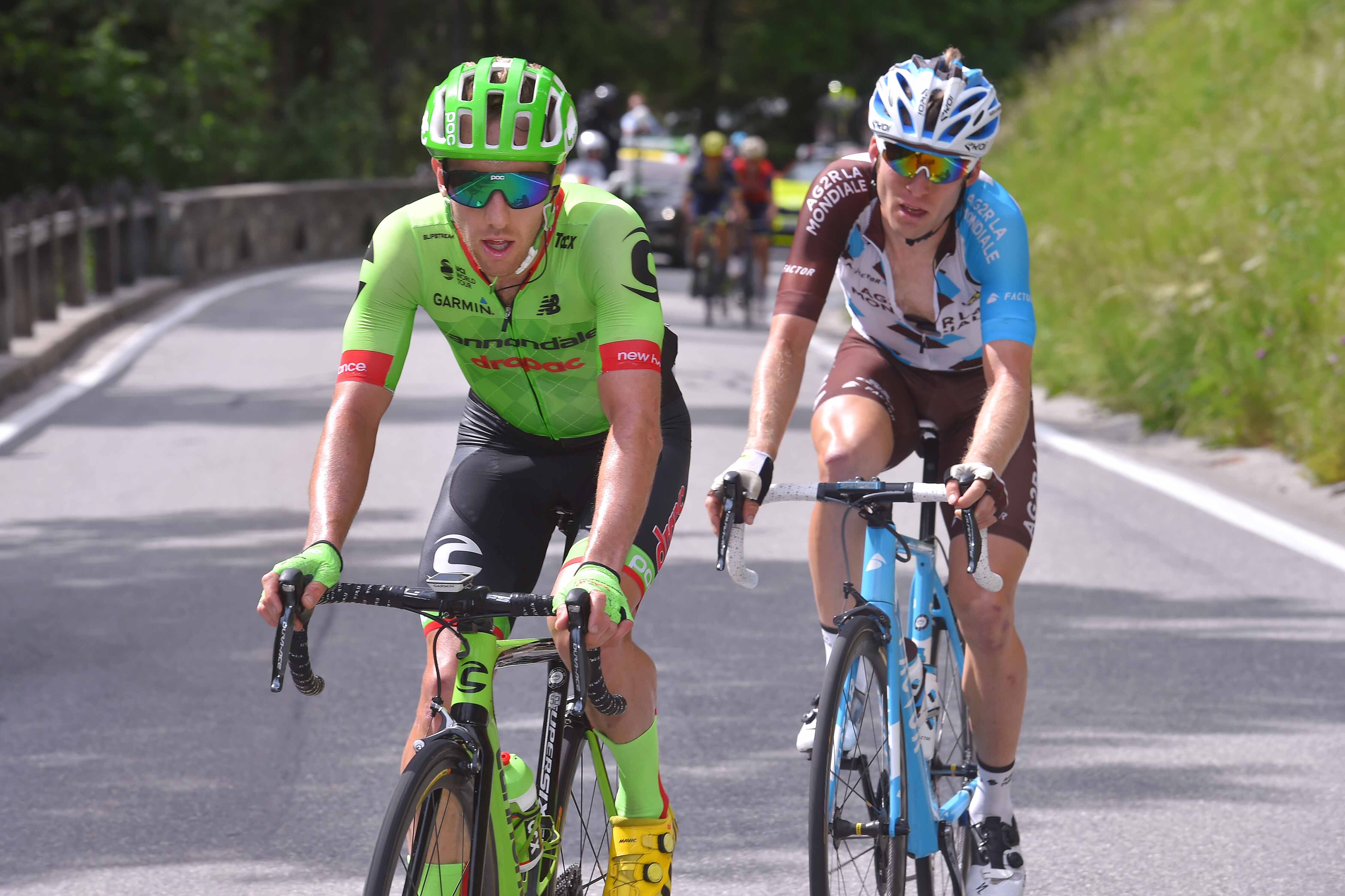
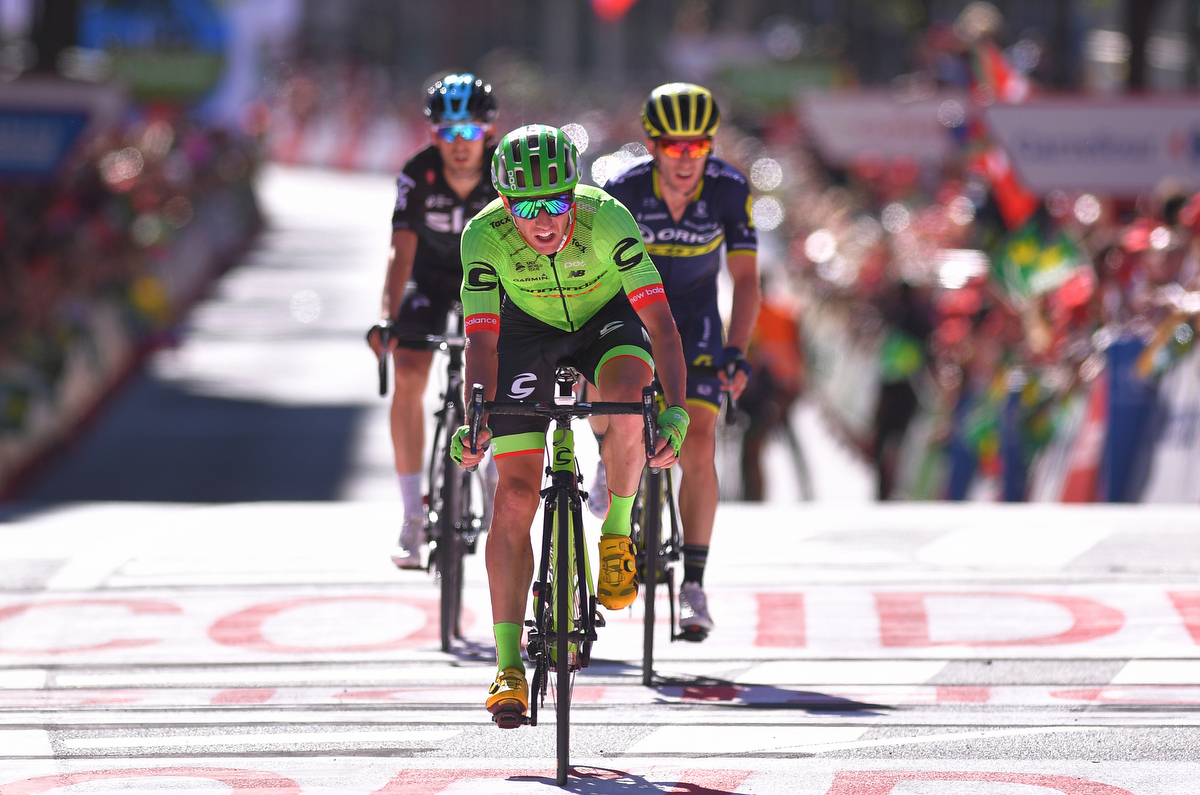
"There's purpose to this," I said to Alex Howes as we rode along the shoulder of highway 103, a road that wound its way up to Mt. Evans. We were over three hours into, what would be, a 7.5 hour grind from Boulder to the 14,200 ft summit of Mt Evans and back.
When you ride beside somebody for 7.5 hours you learn a lot about that person. I remember last year, while having dinner at Phil Gaimon's gran fondo, one of the participants sat with my wife and I the night before the ride and said one of the best times he could talk with his son was when they were in the car. The focus on the road ahead, and not completely looking at the person, allowed for a touch of anonymity and with that anonymity came an ability to share. He reckoned that for the same reason, on a ride, it is easy to slide into deep subjects and intimate conversations. I agreed. This in concert with the meditative, and repetitive, process of turning a pedal over in the pursuit of getting somewhere, and enduring something, builds bonds.
For the better part of two weeks in late July and early August, Howes and I rode side-by-side up, down, or along the Front Range of the Colorado Rockies. We talked about everything from politics and cycling to projectile diarrhea. Sometimes we rode in silence. Often, we suffered. There were times where Howes smashed me so hard that I wondered why somebody was paying me to ride a bike, and there were times where I would look behind to see the Golden native flailing at the end of another repeat up Lee Hill. We did this all in the name of preparing for two separate races; Howes for his home race (Colorado Classic) and for me, the Vuelta.
At the halfway mark of our mini-camp there was a realization, between the two of us, that what we were doing was right. There was a simple, and singular, purpose to our existence. It felt like we were in a Hemingway novel. We were lean, we were hungry, and the outcome of our efforts was either going to ruin us or leave us at our true peak — that fleeting moment that occurs every so often in an athlete's career. That rare height, where your ability to endure is only outdone by the speed at which you can propel yourself forward, is beautiful. Between ruin and ethereal highs, with the way we were riding, Howes and I suspected that we were headed towards the latter.
When I landed in Spain nine days before I began the Vuelta, and during the first stages of Colorado Classic, I watched Howes' results roll in, and all I could do was smile. On the Queen stage of Colorado Classic, Howes looked like Neo in the Matrix. He controlled the race in a way that you didn't need to see the final in order to know the outcome. He climbed with arguably the best climber in the race, shredded the descent and easily won the sprint against TJ Eisenhart to claim the win and the race's overall lead. Howes' ride was validation of the work we had done, and when he texted me after, "your turn buddy," I thought the same thing.
'I am a different rider'
The Vuelta was my second Grand Tour this season, and the second Grand Tour of my career. Since writing my last blog for Cyclingnews I am a different rider. I raced 84 races this season (81 of which were World Tour races) without a single broken bone, and only a scratch to my hip. Last season, for me, was in many ways a disaster, and my confidence and my bike handling skills bore the brunt of this disastrous campaign. This spilled into the beginning of my 2017 season, and my performance at Tour Down Under was a reflection of this lost confidence. I had the legs, but I didn't have it between the ears.
Despite my failures at TDU, my team, Cannondale-Drapac believed in me, and under the guidance of Charly Wegelius and Juan Manual Garate (Juanma), I was thrown in, what seemed like, every climbers race on the World Tour Schedule. With each race I got better, and learned, and by the last week of my first grand tour, the Giro, Charly was quoted by the Cycling Podcast as saying; "I'm always saying how green Mike is and needs to learn about racecraft and so on, but apparently I'm also wrong about that, because he really carried off that final like an old fox."
The boys on the bus were still calling me "Rook," but the nickname was starting to have a ring of irony. This season I really found myself as a rider on this team, and as I started the Vuelta, I pushed my agent, Caleb Fairly, to finalize a deal with Jonathan Vaughters. I loved riding for this team and I felt two more years on Cannondale-Drapac would be the best investment I could make in my career. When I finally received the contract after the 7th stage of the Vuelta I was eager to sign.
By stage 7, all seemed right with the world. I was having a great race. Juanma was managing me like only a guy who has ridden 26 grand tours — and won stages at all three — could. He took the pressure off of me by telling me that my only focus should be a stage win; the pursuit of a GC would be something we could contemplate later in the race. I was racing with the freedom of a guy who had a secure contract for two years and without the expectations of a GC rider. That night this would all change.
The night before stage 8 I received a text from Caleb saying that the team had lost a potential major sponsor and the contract that I had received was worth as much as the paper on the roll beside the toilet in my hotel bathroom. I didn't sleep much that night. My mind raced from wondering what team I would ride for, how much I stood to lose, and all of the people involved with Cannondal-Drapac that could be out of a job.
My roommate, Joe Dombrowski, also knew the news, but beyond us there were few people on the team who were aware. The next morning, as guys talked about the upcoming stage, and ate omelets and museli cooked by our chefs Olga and Sean, all I could think about was the impending shit-storm and exchange sad glances with Joe Dob.
Going for broke at la Vuelta
That stage I set the goal — in an effort to start selling myself to other teams — of being as visible as possible on the final climb. When we hit it, I did the opposite of what I had done throughout the early stages of the race. I didn't play it cool, and I went straight to the front. When Alberto Contador (Trek-Segafredo) attacked, I didn't just follow but I went overtop of him. I set the best pace I could, but my eagerness to be seen bit me in the ass, and when Wout Poels came up to me with Chris Froome and the other GC contenders in tow, I blew up and fell off the pace faster than a pair of pants back stage at a John Mayer concert.
I crossed the line pissed off at myself, angry at my desperation, and praying to have a text from Caleb stating that there was a giant misunderstanding. After clearing doping control I hustled to the team van, waiting to take me to the team bus, and was greeted by Tom Southam, "Shit news, mate," Tom said. "We got an email from JV saying the team is going to fold."
On the team bus there wasn't much talking, just eight riders staring at smartphones, sending desperate messages to agents and other team directors. Guys went from thinking where they were going to vacation this off-season to wondering how long they could make payments on their house on a Pro Conti salary. It certainly wasn't the worst thing that could happen to a person. We were all still getting paid to race bikes, and we were all healthy and young and we would figure things out, but this being said, our current states of being were facing major shifts, and likely in a negative direction. There was a surprising level of calm on the bus, but the mood was a concoction of nervousness, disappointment, disbelief and frustration with the precarious nature of our career choice.
Pro cyclists, relative to the average population, aren't risk adverse. What my wife considers to be a risk, to me, seems laughable. My threshold — along with the majority of other cyclists — for risk falls more in line with Han Solo's than C3PO's. I mean I am cognizant of the fact that hitting 120km on a descent in Switzerland is ridiculously fast, and the repercussions of me crashing at said speed are life altering, but when you spend many hours each year habituating yourself with risks such as these you become comfortable with higher stakes, and the apparent dangers become banal. This, at least for me, seems to shift into all facets of my life. Cutting it close for a dinner date doesn't really move my pulse, but my wife's reaction to this is effectively the same as if Peter Sagan just came underneath me in a corner at 50km/h.
For this reason, at the detriment of our wellbeing, I think, most pro cyclists go unfazed by not just the risks to our lives on the bike, but also off of the bike. Every rider on the Cannondale-Drapac bus that day was pissed off by what was happening, but was also accepting of the fact that even a contract didn't necessarily guarantee they would be earning money next year. Our financial lives, relative to the general population's, are hugely risky, and we as riders, because of our high threshold for risk, accept this as the norm.
This should not be the norm though, and riders and teams need to do a better job in unifying in an effort to strengthen our ownership of the sport. That a team, whose top rider was one of the biggest stories in cycling's biggest race, a team who was the only one to bring — not just one but three — riders from America — one of the sport's burgeoning markets — to the Tour could fold one month later is stupid.
No guarantees in cycling
But what is even more stupid is that pretty much every team currently in the WorldTour is not guaranteed to be in existence by 2020. Could you imagine people still being fans of the New York Yankees if they knew full well that the team, and every team that they played, had a very real possibility of not being in existence in three years and even if they were that every aspect of that team — including its name, roster and country of origin — could be completely different? It's almost inconceivable, yet this is the norm in cycling, and to me a glaring failure by our sport.
Fans of our sport love the history of the races, but imagine if there was history in teams? The potential for revenue, growth and the ability to retain fans would be huge. Our team CEO, Jonathan Vaughters, has talked about this ad nauseum, but he is right, and there are numerous examples across many professional sports of teams, and their players, owning parts of their sport (from TV revenue to image rights) resulting in a far more stable environment for not just those teams and their athletes, but the sport itself.
Instead of having a stable model in place protecting riders and teams, on stage 9, myself, and eight other riders, sat on a bus that would likely be sold to another team scraping to get into ASO events in 2018, as Juanma — a guy who also would be out of a job in a few short months — attempted to motivate us for a bike race that none of our heads were in. However, you don't start 26 Grand Tours without the mental capacity to compartmentalize and motivate. Juanma looked at all of us on the team bus and said, "We can race this two ways: option one — which I will not judge you for because you have families and need to think of your futures—is to race our own individual races, or option two; we can race as we have the past eight days — as a team — and prove why we were hired to be professional cyclists." When Juanma asked all of us on the bus which option we would choose, every rider on the bus put their hand up for option two.
The plan for that day would be to ride the front as a team. We would take control of the race and we would show Cannondale-Drapac off to the world in an attempt to control the breakaway and set me up for the steep 5km summit finish in Cumbre del sol. When I stepped off of the bus Juanma pulled me aside, looked me in the eyes and said, "Mike, I'm not going to tell you this before any other stage in this race, and I probably won't tell you this for any other race in your career, but today you have to get a big result. Do it for yourself, do it for this team, do it for your wife and for your future family."
The best ride of my life
For the better part of that 173km stage I sat in the draft of my eight teammates and thought about what Juanma had told me outside of the team bus, and the sacrifice that each rider in front of me was making in order to prop me up for a result. Each one of the guys sold out for me, and under the leadership of Simon Clarke — despite having four guys on the team starting their first grand tour — we rode like a veteran squad. I had never done a WorldTour race where my team rode the front for the entire day for my own personal ambitions, but I was on form, and with only a level headedness that stems from being on form was I able to smoothly navigate the peloton and find myself on Chris Froome's wheel as we began the 5km steep finish.
I rode the best race of my life to date on that stage. I executed when I had to, and I went as deep as I ever had on a bike. I didn't win — I would finish third to Froome and Chaves — but I knew I had done my best, and the relief and the release that I experienced after I had caught my breath several minutes after finishing was ethereal. I was proud of myself, and I was proud of every rider on my team. Chris Froome would later tip his hat to our efforts, and the messages of support and encouragement that I received post-stage were overwhelming.
I also started to receive a ton of calls from team owners, directors and managers. I hope Caleb had a solid phone plan because I am sure he blew out his international calling. For the rest of the race my time off the bike was spent talking to teams, talking to my wife, and lying in bed wondering what team I would ride for in 2018. Of the guys on the team, I was in a rare position, I had options, and I felt very lucky to be in that position.
Only a month earlier, I was scheduled to race the one-day classics in Quebec and Montreal. Juanma, called me up when he saw the schedule and said, "Mike, the course is perfect for you at the Vuelta. You should do the Vuelta." I was keen to do my home races, but my philosophy this season has been "in Junama I trust." This mantra had paid back in spades already so I figured why change? Had I not taken Juanma's advice and chosen to do the Vuelta, instead of fielding calls from teams that I respected and receiving incredible offers, I would have been sitting at home with no control over my fate and expecting a significant pay cut.
As nice as it is to be wanted, those hours off the bike were still hours that I did not enjoy. I was glued to my phone instead of enjoying the process of doing a Grand Tour. I felt like my existence was a constantly evolving pros and cons sheet. The bike became my refuge during this time.
I have never been as clear headed in a race as in this Vuelta. The guidance that Juanma and Simon Clarke were giving me, and the support of the team was exceptional, and my focus was on point. Whether it was a product of all of the distractions on the bike, or whether it was the fact that having performed under the pressure that existed on Stage 9 (I'm sure it was a combination of everything) but in the final week of the Vuelta, I simply got better. Each day I felt strong, my energy levels were high, and Tom Southam started calling me "Mr. fourth week."
This all culminated in what could possibly be the pinnacle of my life. On stage 19 I came across the line of a summit finish ahead of Chris Froome and just behind Alberto Contador. Post stage I rode back to the team bus, showered, took a short drive to a field near the finish line, got out of the car, took a few selfies and signed autographs with several fans, and strolled up to a helicopter. The helicopter was one of two assigned to transfer four of the riders in the top 10 to the next stage.
Achieving the pinnacle
Sitting in 7th overall I hopped aboard a helicopter with Chris Froome, Wout Poels and Fabio Aru, and took a ridiculous number of selfies, fired off a number of messages to friends, and received a text from my agent with the biggest offer I had to date from a team. I don't think there is a designer drug on the market that could top the high that I was on as we cruised above the Spanish countryside, and if that is the pinnacle of my life then so be it because I'm not sure how life can get much better than that.
Regardless of the offers that I had received over that week, there was still a giant part of me that wanted to stay with Cannondale-Drapac. As I mentioned earlier, I had found myself as a rider on this team, and my performances that month were a product of my development on this team. I have great friends in the staff, the riders, and the sponsors on this team, and the idea of changing all of this, despite the amazing offers, was tough.
I was very close to signing one contract with a team, when I called Caleb and told him, "Dude, is there any way JV is going to save the team." Caleb told me he would call JV one last time and confirm. The final week of my Vuelta had already been amazing, but got even better. Caleb would call me on Stage 20 and confirm that JV had pulled it off. EF Education First, a Boston-based education company, was coming on board and the team would continue into 2018.
For a guy who has seen one athletic career ruined, it has been hard for me to believe in fairy tale endings, but as I sat at the dinner table, post Vuelta, in Madrid, with my wife, my parents, my teammates and the team staff, I couldn't help but feel an euphoric level of happiness. Just completing a Grand Tour alone gives you a massive sense of satisfaction, but to have done so with the roller-coaster of emotions and stresses of our team folding, and then being saved, and to have done so with contract in hand and my biggest result in my sporting career freshly printed on my palmares is a fucking fairy tale ending.
As I sit here now in a café in Girona, a few weeks removed from these ethereal highs, I am emotionally spent. I was slated to take on the Italian Classics, but I wasn't sure if the body could sustain the highs of what I had just experienced, and in the days following I crashed in a pile of chips, beers and greasy foods. I called Charly, and explained the situation; he laughed and said he understood, so now I find myself in the middle of an off-season, and wondering how I will top this year. At least it will be on a team where they still call me "Rook."
Get The Leadout Newsletter
The latest race content, interviews, features, reviews and expert buying guides, direct to your inbox!
Canada's Michael Woods is a former middle-distance runner turned road cyclist and he races for the US WorldTour outfit Cannondale Pro Cycling. He proved his climbing ability on the world-class stage in February 2015 when he rode into a fifth place during the queen stage 4 of the Volta ao Algarve in Malhão behind stage winner Richie Porte, world champion Michal Kwiatkowski, Jon Izzagire and Geraint Thomas. You can follow his blogs on Cyclingnews during the 2016 season, his first year on the WorldTour, on his website: rustywoodscycling.com, and on Twitter: @rusty_woods.